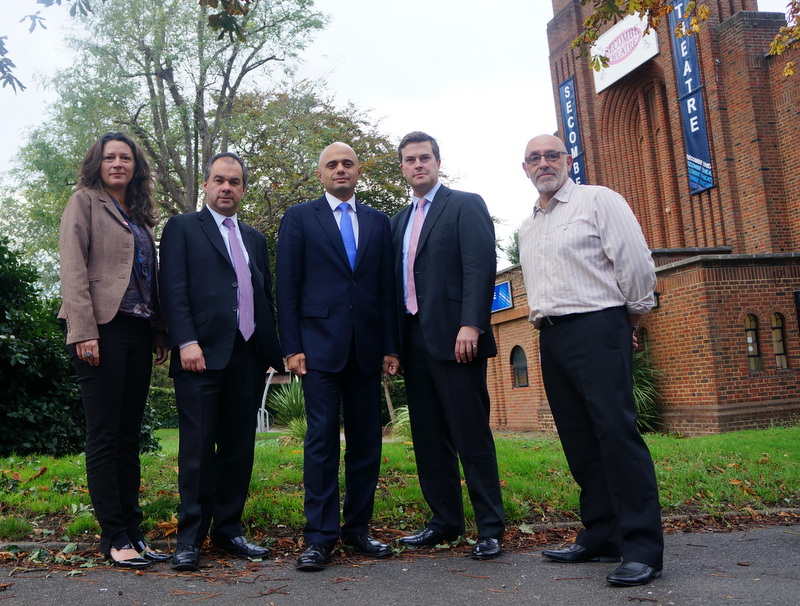
Southern Rail & the unions
Much as I love my job, the one thing that I knew I’d hate about becoming an MP was returning to a daily commute. I was right and it’s clear from my twitter feed, emails and letters that I’m not the only one who bemoans the atrocious performance of Southern Trains. I even managed to miss a ‘Meet the Manager’ event at Victoria station after my train was delayed. Last year, I started the call for Transport for London to take over the organisation of Sutton’s train services as they’ve done a reasonably good job in running the London Overground routes and TfL Rail to Shenfield. I was pleased that the Department of Transport have now agreed this albeit at the end of Southern’s franchise in 2021. TfL will take over the organisation of the parts of the Southern network that is predominately in London, though that is not the same as actually providing the services themselves.
That bodes well for the long term but doesn’t address the short term problems. I had thought that stripping GTR (who run Southern and Thameslink) of the franchise would help, but on further investigation I believe it wouldn’t change much immediately even if it did make us feel better for a while. The overall situation is complicated and is further exacerbated by unofficial union action which is providing commuters with a real summer of misery. It is this union action that we need to tackle first in order to strip back the underlying ongoing issues with Southern and Thameslink.
Network Rail
Some of the problems with the network are out of Southern’s control. The London Bridge station refurbishment is not due to be completed until the end of 2018. Signalling is woefully inadequate especially around the major junctions such as Purley and Selhurst. Because the Sutton lines join up with the mainline coastal routes, these all have knock-on effects even if they are not directly en route. Our franchise is the busiest in Europe, taking 22% of all rail passengers in the UK. Victoria station has more people passing through the barriers in the 90 minutes of the morning rush that fly from Heathrow in a day. The only way to increase capacity on the Southern routes is to move to digital signalling. Rather than having one train sitting between each set of traffic lights, digital signals monitor and regulate gaps between trains allowing them to travel closer together. This is how capacity and efficiency has increased markedly on the London Underground. There are several stretches of rail, especially closer to London where trains are only allowed to travel at a crawl because of the quality of the track. Replacing this requires significant investment and will entail many weekends of work. All of these issues are the responsibility of Network Rail, the government owned organisation that controls the rail infrastructure. Southern liaises with Network Rail but has no more input than that.
Long term solutions
Of course there are many faults that do lie solely with Southern. Trains breaking down are because of outdated rolling stock. Not enough staff until recently was down to a lack of recruitment by Southern although the unofficial union action has made this far worse. Southern are gradually introducing more carriages. The process is starting now but will take several months for the whole programme to roll out. This will eventually lead to more reliable trains. Southern started a major staff recruitment programme in 2014 but of course it takes time to train people once they’ve been hired. The old contracts that staff have been hired on date back to the steam age where rest periods reflected the physical nature of stoking furnaces and suchlike. Building up a staff roster who can look forward to a modern rail service will help tip the balance towards better management/staff relations where serving the customer is at the forefront of the job.
Union action
There had been some signs of improvement in April but things have got hugely worse since. The primary reason for this is RMT and ASLEF fighting against the introduction of Driver-Only Operated (DOO) trains. At the moment 40% of all routes in this franchise are already DOO including all of the services that go through Sutton. Most of the London Underground runs on this basis. Essentially the responsibility for closing the train doors before departing each station is with the driver using CCTV and platform staff, rather than with the guard on the train who can then be redeployed to more passenger-facing activities such as ticket sales and enforcement. No jobs are to be lost. At the moment the guard controlling the doors has to be specifically trained on their particular route and so cannot be moved to cover any other route to cover staff shortages, a significant hindrance to improved productivity. ASLEF had agreed to DOO trains on a number of routes but when an extra carriage were added to the Gatwick Express, they considered this a significant changeand so refused to keep the DOO system despite this already being operated successfully on this service. DOO has been in existence for more than quarter of a century. ASLEF representatives have been calling on members to “dig the trenches and prepare for war” when it comes to combating DOO.
The RMT recently talked about withdrawing the threat of industrial actions which is fine but what they need to do is to get their members to call off their unofficial action too. There is an extraordinary high level of ‘sickness’ where people are calling in to take a day off. Apart from disrupting the route that they are due to run, this leads to trains being in the wrong place so drivers who attend work on time are unable to operate anything and cover cannot be called in because of the need for route-trained guards. This go-slow is wreaking havoc on services. With Southern already underperforming, this further frustrates and indeed, annoys commuters. People have reportedly lost their jobs as a result of persistent lateness. One train in four arriving at Victoria on time is just ridiculous. Stripping the company of this franchise will do nothing to solve this immediate issue. DOO will be introduced across the network on August 21st. As it happens, their talk of withdrawal didn’t last long with a fresh five day strike announced for the 8th August onwards.
Southern have temporarily cancelled 341 trains each day claiming that this will be allow them to ensure the rest of the service can better cope with the unofficial action. This has had had mixed results but I was one of a number of MPs that told them that this was not the sensible way forward. Cutting further services is creating a hostage to fortune and adding to the woes of the paying public. There are also still too many services being delayed after this measure has been put in place. People have also complained about trains missing out stations in order to make up time. The Southern franchise works on a different basis to most others. GTR have a management contract with the Department of Transport for which they are paid a fee. They are not mitigating the risk of fines by skipping stations so this is simply an operational decision to ensure that services run as best as possible and that the rolling stock remains in the right position for the next service.
No easy answers
I have been working with the Department of Transport, GTR and the very many MPs from across the parties whose constituents are equally as affected. The union action must be resolved by September when people come back from their summer holidays. Demand dips by 20% in August but that clearly doesn’t last and so the pressure will soon return. GTR need a clear plan that can actually be delivered. The new Secretary of State for Transport is Chris Grayling, my neighbouring MP in Epsom & Ewell. His constituents are affected by the very same train routes as Sutton & Cheam. This situation is one of the most important items on his agenda (along with the impending airport expansion decision). I have already spoken to Chris about the situation and know that he is working hard on resolving the situation. It’s frustrating but it’s going to take time. It is scant comfort to remember the British Rail days when I had two unreliable trains an hour from Carshalton Beeches to Victoria. Demand has increased but so has expectation. We have plenty to do to make the service bearable, let alone world-class. But it is a top priority of mine to aim for both.


